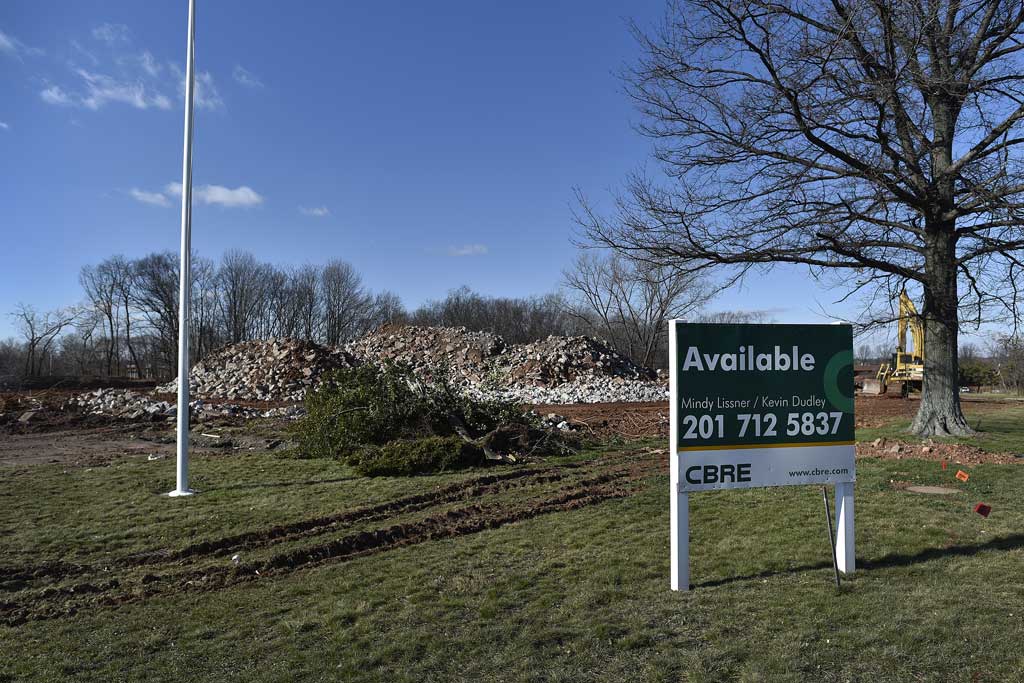TRENTON — Two sites in Woodbridge are part of six separate lawsuits that the state recently filed.
This action was aimed at recovering damages for the harm caused by pollution to properties, groundwater and waterways across the state, while also in an attempt to recover the costs the state has paid in conducting environmental clean-ups.
Attorney General Gurbir S. Grewal and Department of Environmental Protection (DEP) Commissioner Catherine R. McCabe announced the filing of the lawsuits on Aug. 1 calling it a “new day” for environmental enforcement in New Jersey during press conferences in both Newark’s Ironbound District and in Atlantic City.
“This is the largest single-day environmental enforcement action in New Jersey in at least a decade,” Grewal said in a prepared statement. “Today is just the beginning. We are going to hold polluters accountable no matter how big, no matter how powerful, no matter how long they’ve been getting away with it. And we’re sending a message to every company across the state — if you pollute our natural resources, we are going to make you pay.”
In three of the six cases, the state is seeking payment for damages to the state’s natural resources, known as “Natural Resource Damage” cases, or NRDs.
Until Aug. 1, the state had not initiated a new NRD case since 2008.
The cases, which in the past have been worth millions of dollars, involve claims for the loss to the value and use of natural resources, including surface and groundwater, sediments and wetlands, according to the statement.
The lawsuits span the state, covering areas in the north and south, rural and urban. The two sites in Woodbridge include the former Hess petroleum refinery in the Port Reading section and a former retail Mobil gas station in the Fords section.
In 1958, the Amerada Hess Corp. opened a refinery in Port Reading. In 2013, the Hess Corp. sold the site to Buckeye Partners, which uses the facility to store and process crude oil and refined petroleum products. Over the years, there have been numerous spills and leaks at the refinery that caused injuries to nearby natural resources, according to the filed complaint.
Several owners operated a retail gas station on King George’s Post Road in Fords from the 1940s to the early 1990s. In the 1990s, the station was converted to an automobile repair service business.
When four underground storage tanks were removed in 1998, it was discovered that gasoline-related compounds had leaked from the tanks and contaminated the soil and groundwater, according to the filed complaint.
The other lawsuit sites include the Pohatcong Valley Superfund Site in Warren County, which has a stretch of groundwater contamination up to nine miles long; the former site of the Ronson Metals Corp., a cigarette lighter manufacturing facility in the Ironbound District of Newark, on which residential homes were subsequently built; the former site of Ruggiero Seaford Inc., another manufacturing facility in the Ironbound District of Newark, where a school was recently built; and the former site of manufactured gas plant, now owned by Deull Fuel Company, near the Beach Thorofare waterway in Atlantic City.
The three NRD cases are the Pohatcong Valley Superfund Site, the Port Reading refinery, and the Deull Fuel site in Atlantic City. The three other cases involve efforts by the state to recover taxpayer money spent addressing contaminations known as “cost recovery cases.” The lawsuits seek compensation from the parties responsible for pollution at each site.
Acting Gov. Sheila Oliver praised the renewed focus on enforcing New Jersey’s environmental laws.
“For years, companies have failed to act responsibly, endangering the health of New Jersey and its citizens,” Oliver said in the statement. “Today we are sending a clear message that we will do everything in our power to hold these companies accountable and protect New Jerseyans. By taking necessary legal action, New Jersey continues to bolster its reputation as a national champion for the environment and staunch defender of public health.”
McCabe said natural resource damage cases are an important way to protect New Jersey’s environment and the primary mechanism for restoring the state’s natural environment when it has become polluted or damaged by industrial or other human activities.
“New Jersey has always been well known nationally for its leadership in environmental protection, and our attorney general’s environmental legal staff has a well-earned reputation as one of the best in the country,” McCabe said.
She also said that she was surprised to learn New Jersey had filed no new NRD cases in the eight years of the Christie Administration.
Greg Remaud, baykeeper and chief executive officer of the NY/NJ Baykeeper, saluted Grewal, McCabe and Oliver for filing the first environmental damages lawsuits in a decade.
“This is a very important step in ensuring the public trust resources are made whole by those who despoil them and deny millions of people access to active and passive recreation in along our waterways, our open space, and especially our urban communities that get hit hardest by environmental insults,” he said in the statement.
State Assembly Environment Chair Nancy Pinkin (D-Middlesex) said she was pleased to see New Jersey back in the environmental enforcement business.
“This is good news for the state and will propel us forward once again as a leader among leaders working to strengthen environment protections and combating pollutants that contribute to global warming and climate change,” she said.
McCabe said the DEP and Attorney General’s Office is “committed to safeguarding and improving the quality of our air, waters and land for all of New Jersey’s residents, no matter where they live.”
Grewel said in the coming months his office will aggressively bring more NRD cases throughout the state.




